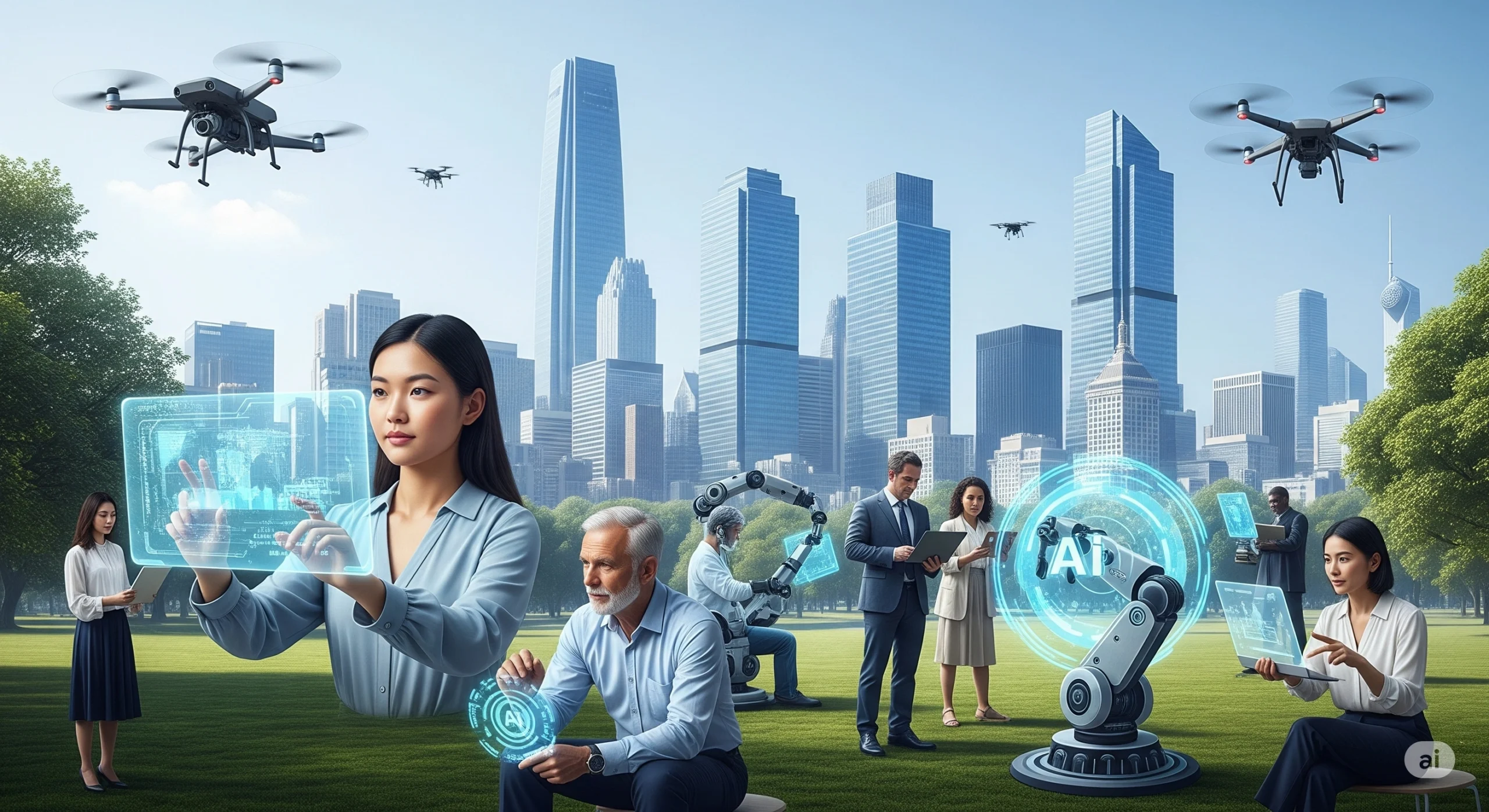The Future Impact of AI on Jobs

The Future Impact of AI on Jobs
Artificial Intelligence (AI) is in the forefront of one of the most significant technological jumps in the human history. AI is no longer a farfetched dream of a science fiction movie, what it is now is a living and evolving trend and influence that is affecting the way we work live and interact within the world. Whether it is self-driving cars or smart personal assistants, or predictive healthcare, or smart goods production, the future of AI is as disruptive as the discovery of electricity or the creation of the internet. A 2023 McKinsey report estimates AI would generate as much as 4.4 trillion of additional revenue to the global economy each year. Readings of this can be read into almost all the sectors, economic, social, ethical and political and the path to the development is taking is presenting a great opportunity as well as threatening problems that man is called upon to respond to with speed and wisdom.
On an economic front AI is bound to become a significant productivity and growth engine. Task automation is already being done in industries like the finance, retail, logistics and manufacturing industries where traditionally there has been a lot of manual labour invested in the tasks. According to Statista, the global market of AI was estimated at around the year 2023, with an estimated figure of about $208 billion, and a future projection of reaching 1.8 trillion US dollars by 2030. It is possible that soon AI will establish new jobs, enhance efficiency, develop new markets and services that so far were considered impossible. Nevertheless, the change cannot take place without some disincentive. According to one report by the World Economic Forum, it is expected that by 2025 about 85 million jobs are going to be displaced because of automation. As encouraging as this net job growth may prove, this transition process may be fraught with dislocations unless there are sufficient retraining, education, and social safety nets that would assist workers to adjust to their new jobs.
Social consequences of AI are equally widespread. The potential of AI in healthcare consists of personalized medicine, earlier diagnoses, and better treatment. As an illustration, image recognition with AI can identify diseases including breast cancer with more than 90 percent accuracy in many cases, performing better than human radiologists. This is evidenced by the fact that the global AI in healthcare market alone should exceed 188 billion by 2030. Within education, adaptive learning technologies allow the real-time analysis of student performance and can start altering the way content is presented based on that analysis to boost learning outcomes by up to 20%. Nevertheless, Ethical questions also arise during the involvement of AI within such sensitive areas. The need to ask questions regarding the privacy of the data used, discrimination by algorithms, and even the loss of human decision making is becoming very urgent. In another example, MIT study of 2022 revealed that commercial facial recognition models made errors as high as 34 percent on dark-skinned women, showing how biased datasets cause inequalities and can be irreparably harmful.
The other crucial aspect of AI future is that it brings a shift in power balances and governance in the world. Geopolitical competition among the countries is likely to be in the hands of those frontiers in AI discovered and technological advances. Considering only China and United States, they combine to contribute above 60 percent of global private investment in AI, where in the case of China alone, investment was more than $95 billion. Because AI is increasingly part of any military-technology, any cybersecurity, and any national infrastructures, then the competition to achieve AI superiority may bring countries to conflict. Conversely, there is also a possibility of international cooperation in AI, whether in terms of treaties, joint research, and ethical principles, by which AI would serve the interest of all humankind. Recently, the OECD adopted the AI principles by more than 40 states, which could be seen as the step towards a common framework, yet it is not globally enforced.
At the personal life level, AI will become closer companion in every-day life. Smart house, smart assistants, topic-related content suggestions, and even empathic AI companions will transform the way people perceive reality. According to a study conducted by Pew Research, 3 out of 4 Americans are worried about the ways in which businesses are going to use the information gathered by the AI devices. Consumer behaviour or even political opinions can be manipulated by the data collected via voice recordings, location tracking and/or behavioural analysis. As AI machines become increasingly entrusted in the society, there will be need to come up with clear regulations on consent, transparency, and accountability to safeguard freedom.
The implications of AI down the line are manifold, intricate, and developing at an alarming rate. It presents unequalled hope of transforming life, ending worldwide problems, and opening the doors to new knowledge realms. Meanwhile, it poses severe threats that should be managed in advance. Governments, corporations, researchers, and civil society must assume the responsibility to make sure that AI evolves in a manner that is fair, transparent and human values oriented. We are on a crossroad and what we do today will determine the future of AI tomorrow. It is not only a revolution about technology, but also a revolution of the society and it is time to think and engage and have an inclusive conversation of what is to be done next and how to build a better future.











